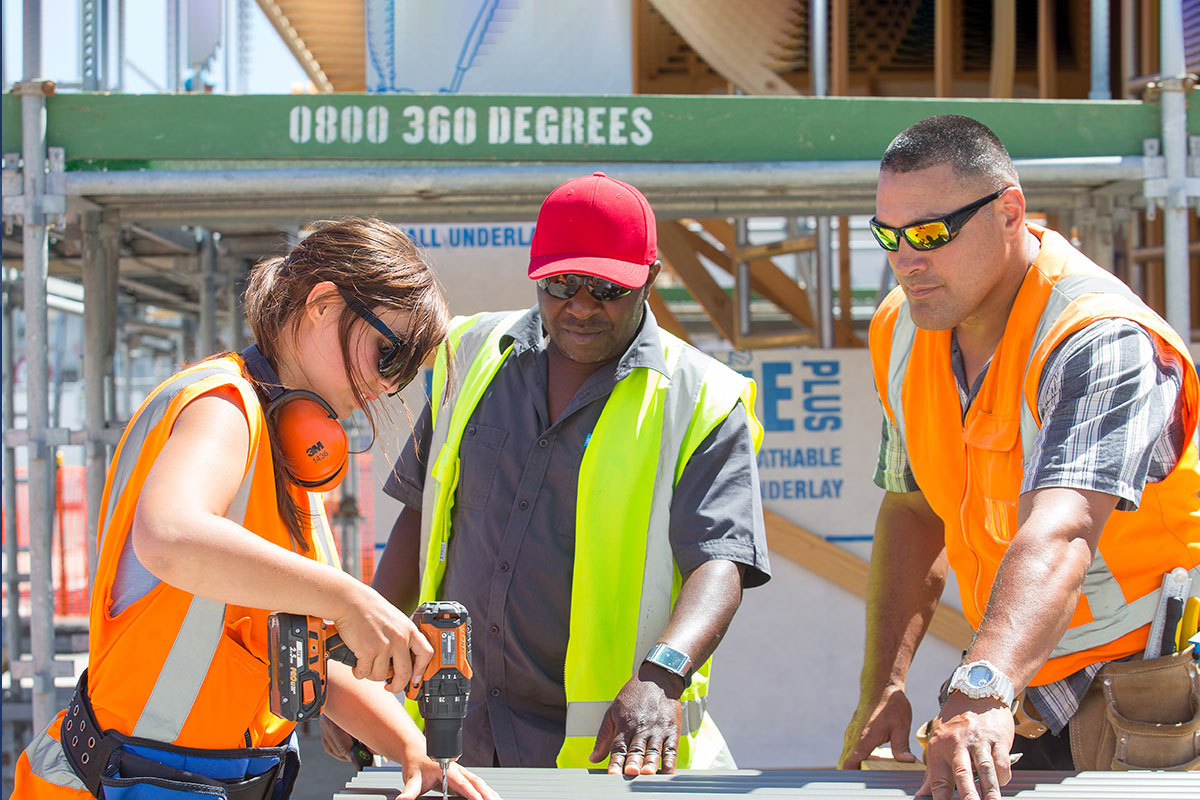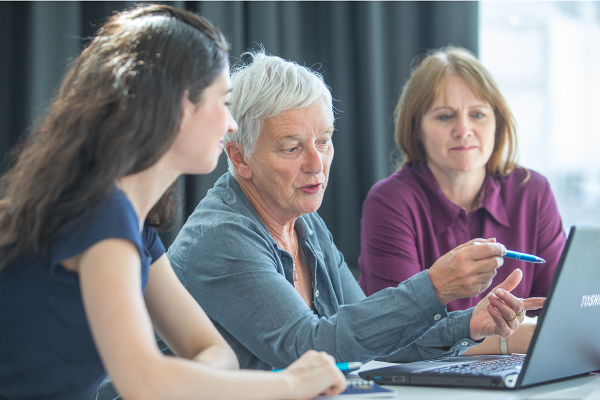About the AARIA Fund
Ako Aotearoa Research and Innovation Agenda (AARIA) aims
The Ako Aotearoa Research and Innovation Agenda aimed to catalyse systems-level change within the tertiary education sector, with the goal of advancing more equitable learner outcomes.
The AARIA programme invited proposals for innovative, ako-centred research projects that explored potential solutions and enhanced support mechanisms for ākonga and kaiako, as well as teaching and learning strategies that contributed to the following objectives:
- Facilitate system-wide change across the tertiary education sector that enables a more responsive, flexible, and innovative system to meet the diverse needs of learners and communities. Proposals should contribute to transformational change that supports greater collaboration, adaptability, and alignment with the Tertiary Education Strategy (TES) objectives, ensuring the system works for all New Zealanders.
- Ensure equitable outcomes for Māori, Pacific, neurodiverse, and disabled ākonga.
- Response to pressing global and local issues such as technological advances (eg: artificial intelligence); online learning; and the needs of learners from low socio-economic and low-income backgrounds.
- Improve systems and processes to support best practice tertiary education that focus on whole of organisational leadership and change to deliver the outcomes above, including organisational culture and design, the utilisation of data to support planning and action and review, and the connection between the organisation and its wider partners (such as iwi, industry and community).
The AARIA priorities aligned with the expectations of the National Centre for Tertiary Teaching Excellence (NCTTE) – funding goal 2.
TEC guidance states that the NCTTE Fund is to:
- Build teaching capability of TEOs and educators.
- Commission and conduct research, monitoring and evaluation about effective teaching.
- Provide associated advice to the sector and government agencies.
- Administer the Tertiary Teaching Awards.
Strategic goals
Five strategic goals aligned to the Tertiary Education Strategy to inform the AARIA priorities:
- As a Te Tiriti-o Waitangi-led organisation Ako Aotearoa seeks to be a leading body in the tertiary education sector in a diverse Aotearoa New Zealand.
- To lead change in teaching and learning excellence and educational capability, being agile, adaptive, and impactful to support the Tertiary Education Strategy priorities.
- To champion learners as Ako partners, valuing their experiences, voices, and aspirations and those of whānau and communities.
- Barrier-free access and strengths-based approaches to improve educational and other outcomes particularly for Māori and Pacific Peoples.
- To lead and build language, literacy, numeracy, and cultural educator capability in tertiary foundation and bridging education and workplace learning in Aotearoa.
The importance of research and innovation across the tertiary education system
Each level of the tertiary education system wants the same outcomes for ākonga, but each level has different knowledge needs to achieve this. For example:
- Government is interested in knowing about: the extent to which the objectives of the Tertiary Education Strategy (TES) are being met; the extent to which the RoVE changes are providing a coherent, seamless learning experience; and how to achieve equitable outcomes for Māori, Pacific, disabled, and neurodiverse ākonga.
- Organisations and educators are interested in knowing about: ways to build the capability of those delivering education and training (i.e. educators, advisors, employers); a pedagogy of equity; how to use an equity lens to know more about the conditions for learner success related to teaching and learning; assessment; support services; and data and technology.
- Ākonga want a range of factors that improve their learning experience and for their voices to be heard (Based on the Te Rito reports).
Sharing good practice
We freely share all resource outputs and information about the projects we fund on our Knowledge Centre. Including reports, tools, summaries, guides, videos, frameworks, presentations and more.
AARIA Priorities
All applications needed to align their research proposals with all of our four broader priorities, and at least with one of our targeted priorities, which were a key factor in our selection criteria. We encouraged combining several targeted priorities into one research project.
Our Broader priorities are high-level funding priorities that bring together the strategic aims of Ako Aotearoa. Our Targeted priorities identify specific areas of research, learning, and teaching provision that we want to see growth or change in the year ahead.
Ako Aotearoa Broader Priorities
- Auaha (Innovation) | Driving system-level transformation in tertiary education with a learner-centred approach, addressing the evolving needs of ākonga and the broader education system. This includes the integration of technological developments (e.g., Artificial Intelligence), innovative and flexible programmes, and support for initiatives such as Te Pūkenga, the Reform of Vocational Education (RoVE), and work-based learning.
- Te Tiriti o Waitangi (Treaty of Waitangi) | Honouring Te Tiriti o Waitangi through tertiary education, including Te Reo provision, Kaupapa Māori education, Mātauranga Māori provision.
- Ōritetanga (Equity) | Achieving system-wide equity for all ākonga, including Māori, Pacific, neurodiverse, disabled, youth, and learners from low-income backgrounds.
- Hua Akoranga (Learner Outcomes) | Education and training that delivers for all learners, including supporting work readiness of all learners, online and distance learning options meets the needs of all learners, providing learning opportunities for people who wish to change careers.
Ako Aotearoa Targeted Priorities
- Neurodiversity
- Te Tiriti o Waitangi (Treaty of Waitangi)
- Mātauranga Māori (Māori knowledge)
- Pacific Cultures
- Leadership of Teaching
- Artificial Intelligence
- Education Technology
Eligibility
Applications must have:
- Been made by an Aotearoa New Zealand-based tertiary education organisation (TEO)[1] or a New Zealand citizen / resident employed by an Aotearoa New Zealand-based TEO.
- Been for research or related activities, the majority of which are to be undertaken in Aotearoa New Zealand.
- Research and related activities that completely focus on Aotearoa New Zealand tertiary education. Proposals targeting on the compulsory sector (eg: secondary schools) were not eligible, even if the proposed research result can contribute to tertiary education.
[1] Definition: https://www.tec.govt.nz/teo/working-with-teos/about-teos
Supporting Documents
This framework (IEF) is a tool developed to measure Ako Aotearoa’s impact on the tertiary education system of New Zealand.
(PDF, 224 KB)
- 12 September 2021
Corporate publication
Contributing to better tertiary teaching and learning outcomes – the summary
A summary of two reports on the impact of Ako Aotearoa’s co-funded projects, Prepared by Linda Keesing-Styles for Ako Aotearoa. Published July 2017.
(PDF, 427 KB)
- 17 May 2023
Corporate publication
Contributing to better tertiary teaching learning and outcomes – the full reports
Report on the value of co-funded projects for budget-holders, practitioners and learners, prepared by Fleur Chauvel for Ako Aotearoa. Published July 2017.
(PDF, 2.1 MB)
- 17 May 2023

